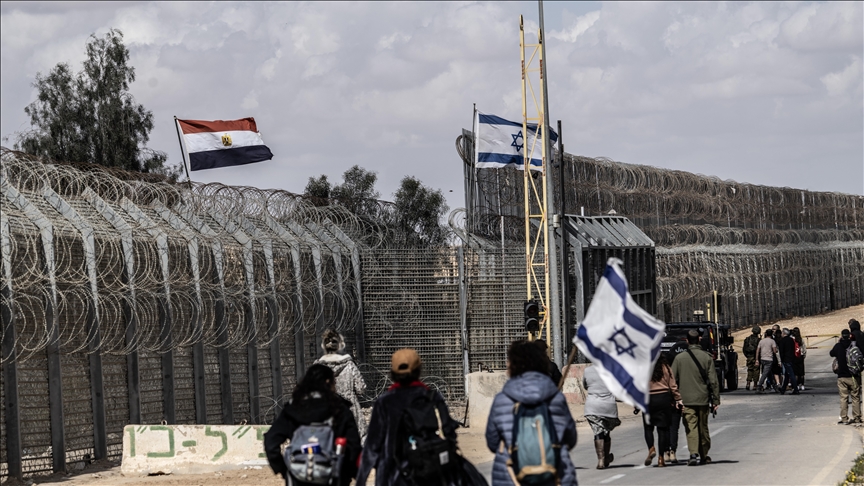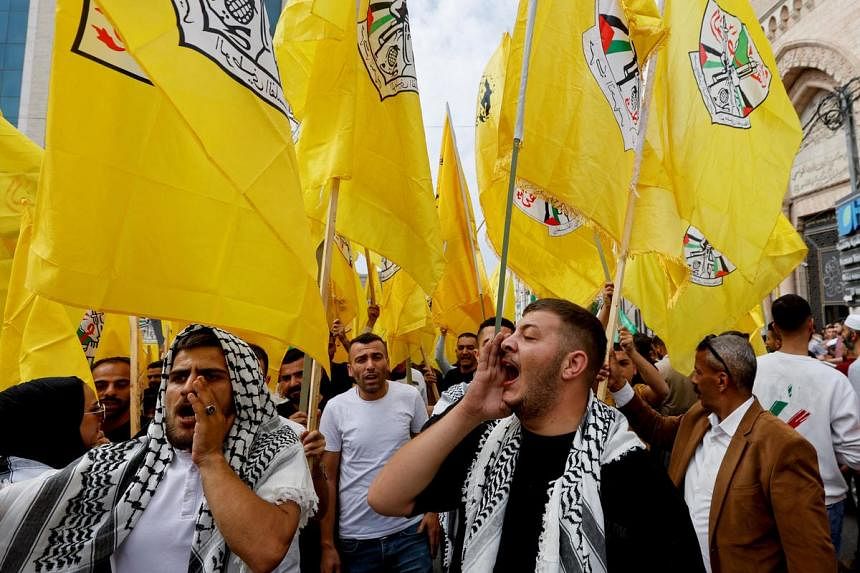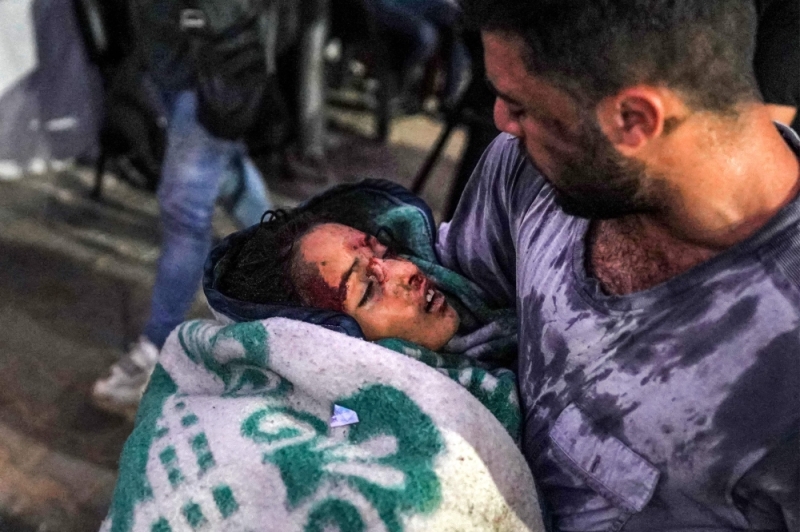Indonesia ready to send peacekeeping, medical forces to support ceasefire in Gaza: Prabowo
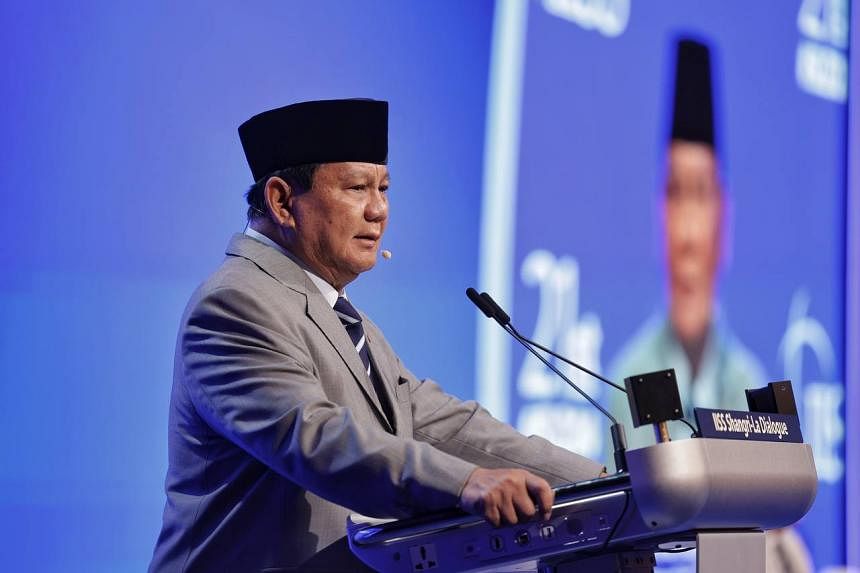
Tan Tam Mei
Assistant Foreign Editor
ST
JUN 01, 2024,
SINGAPORE – Indonesia is prepared to send peacekeeping troops and medical forces to support a prospective ceasefire in the Gaza Strip, where Israel and Palestinian militant group Hamas have been warring, said Defence Minister Prabowo Subianto on June 1.
“We are prepared to contribute significant peacekeeping forces to maintain and monitor this prospective ceasefire as well as provide protection and security to all parties and to all sides,” said Mr Prabowo, who in October will become Indonesia’s eighth president.
Mr Prabowo, along with his vice-president running mate, Mr Gibran Rakabuming Raka, who is the son of incumbent president Joko Widodo, won the Feb 14 election with almost 60 per cent of the votes.
Speaking on the second day of the 21st Shangri-La Dialogue, the annual regional security forum held in Singapore, Mr Prabowo said Indonesia is also discussing with the relevant parties to speed up the deployment of medical personnel to hospitals in Gaza.
“Indonesia also is very willing to evacuate and treat wounded Palestinians,” he said, adding that Jakarta is ready to receive and treat up to 1,000 patients in the immediate future.
Refering to United States President Joe Biden’s May 31 announcement of a three-phase Israeli proposal for a permanent ceasefire in Gaza, Mr Prabowo said the details have to be studied further, but it is “an important step forward”. He also said that the only real solution for peace in the Israel-Palestinian conflict is a two-state solution.
Since becoming president-elect, Mr Prabowo, a retired army general, has been active in global engagements, meeting international leaders, including Chinese President Xi Jinping and Japanese Prime Minister Fumio Kishida, in the months leading up to his October inauguration.
The high-level defence pow-wow in Singapore, attended by global security and defence leaders, including those from Washington and Beijing, is being held amid rising tensions in the South China Sea and growing US-China rivalry.
Mr Prabowo, who has been defence minister since 2019, has not shied away from commenting on geopolitical issues such as the ongoing war between Russia and Ukraine. At the Shangri-La Dialogue in 2023, he pitched a controversial peace plan to end the conflict that began in 2022.
And during his special address on June 1, Mr Prabowo reaffirmed his proposal as one that is “logical, relevant and necessary”.
“It is necessary as an intermediate solution to this difficult, dangerous and, one might even say, potentially disastrous situation in Ukraine,” he said, referring to the plan that called for Ukraine and Russia to withdraw 15km from each party’s forward positions to form a new demilitarised zone, and called for a United Nations referendum on what he termed “disputed” territory.
That plan drew praise from China but criticism from Western nations.
During the session, Mr Prabowo reiterated what he termed the “Asian” way of handling conflict through maintaining good relationships among regional countries, especially amid increased geopolitical tensions and a widening trust deficit between states.
“I’ve been convinced... that real security comes through very good relations between our immediate neighbours,” he said.
Indonesia, the largest economy in South-east Asia and the fourth-most populous nation in the world, must be “close” and “friendly” with its immediate neighbours through engagement, respect and negotiation to solve issues, said Mr Prabowo.
“We have had military conflict with our neighbours... Malaysia and Singapore. But now we are the best of friends.
“We have resolved our differences without interference from any external power.”
In March 2024, Singapore and Indonesia signed landmark agreements that ended years of, at times, heated public wrangling over sensitive issues involving defence, airspace boundaries management and extradition matters.
While he was in Singapore, Mr Prabowo also met Prime Minister and Finance Minister Lawrence Wong.
Both leaders reaffirmed their nations’ close bilateral and people-to-people relations, and took note of the progress made in areas of cooperation such as renewable energy and sustainability.
Mr Prabowo also met Defence Minister Ng Eng Hen and Foreign Minister Vivian Balakrishan, as well as US Defence Secretary Lloyd Austin during this trip.

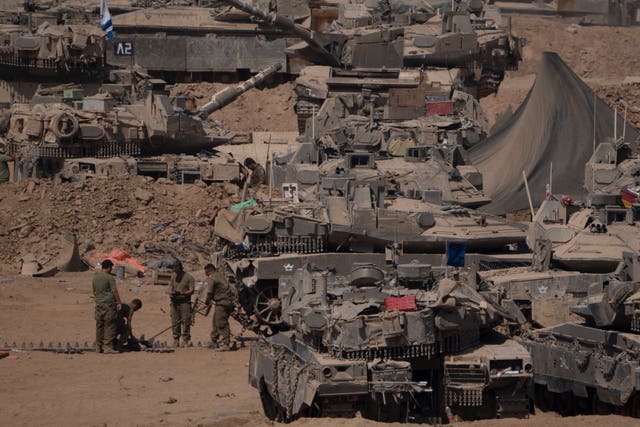 Israeli soldiers work on a tank in a staging area near the Israeli-Gaza border in southern Israel (AP)
Israeli soldiers work on a tank in a staging area near the Israeli-Gaza border in southern Israel (AP)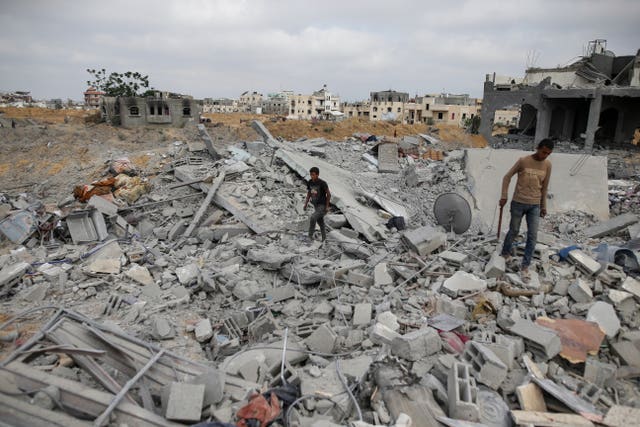 Palestinians look at the destruction after an Israeli airstrike in Khan Younis (AP)
Palestinians look at the destruction after an Israeli airstrike in Khan Younis (AP)